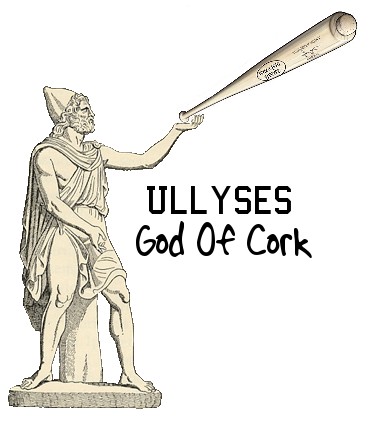
Heroes
And Mythology
If
you happen to be the perfect home
maker living in New York City who
loves baseball, then it hasn't
been a very good couple of weeks
for you: Martha Stewart was
indicted for obstructing justice,
the New York Times printed
fabricated stories, and Sammy
Sosa got caught cheating at the
plate. These are giants of their
industries, icons to countless
millions, wealthy beyond
reason...and they let their
followers down. As it turns out,
they are as flawed as the rest of
us, and probably even more
vulnerable to internal demons. So
what else is new?
Mankind
has been engaged in hero-worship
since time immemorial, and from
beginning to end it's been a load
of rubbish. The ancient Greeks at
least had the good sense to make
their champions mythical, so as
to bestow them with attributes
and ideals that wouldn't be
compromised by mortal weakness.
Anything more is illogical and
far less instructive, and the
Greeks were nothing if not
instructive. The lesson this
teaches is that ideals should be
embraced but not assigned, at
least not in a mortal context.
What is gained when heroes fall
far short of expectations,
resulting in disappointment,
disallusionment and discust? Who
does that benefit, and towards
what end? It suggests that we're
frail, insecure little creatures
who find comfort and refuge in
the accomplishments of those we
perceive to be greater than
ourselves; we live vicariously
through them, hoping to gain
insight and strength from their
example, consequently setting
ourselves up for a fall when they
stumble. It says volumes about
our need for
bigger-than-life heroes to
provide answers to the questions
that we ourselves not only can't
answer, but don't even know how
to ask. And it says we're looking
for these answers in the wrong
places.
None
of this should come as a
surprise. In an era of relativism
that values celebrity over
substance, where cultural
revisionism keeps moving the goal
posts, and "experts" on
everything babble on and on
without any more of a clue about
anything than anyone else, it's
no wonder we're confused about
whom, and what, to believe.
Absolutes no longer seem so
absolute, nor heroes so heroic.
I
interpret these events as the
metastisizing of a malignant
value system, whereby our heroes
are turned against us. Our need
for guidance is tempered by a
desire for cultural convenience
and metaphysical expedience, so
as not to upset our worship of
the superficial and
inconsequential. We want to be
fulfilled, but don't want to do
the heavy lifting required, so we
ask others to do the work for us.
We project unto them ideals to
which we ourselves don't aspire,
then are dismayed when they turn
out to be as non-ideological as
the rest of us. Not only are our
hopes and trust dashed as a
result, but the very ideals
themselves seem diminished.
We
require more of our heroes than
of ourselves, and therein lies
the problem. Those we elevate
above all others should be every
bit as much a reflection of who
we actually are as who we want to
be. But that's not the case. The
differential in American society
now is such that as long as our
icons are excellent, then the
rest of us can embrace mendacity
and mediocrity, because that's
much easier. But when heroes fail
under the weight of an
unrealistic load, rather than
blame them, we should blame
ourselves for being hypocrites.

The
Greeks avoided this trap by
taking human frailty out of the
equation, thereby assuring that
the representatives of their
ideals would remain steadfast,
unswerving and absolute. This
would appear to be a much better
way of teaching classical truths,
while keeping heroes honest.
After all, did you ever hear of
Ullyses getting caught corking
his bat...?
|

